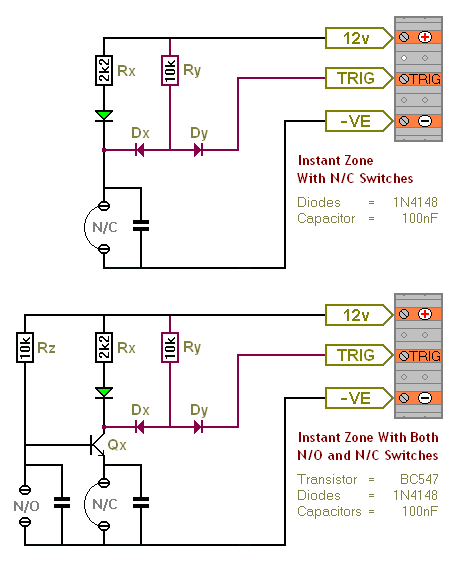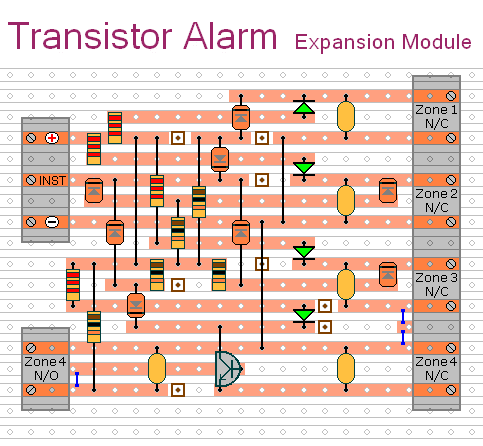Build this Transistor Based DIY Burglar Alarm System using cheap off-the-shelf components. It has automatic Exit and Entry delays - and timed Bell cut-off. Its modular construction allows you to add as many zones as you like. It has provision for normally-open and normally-closed input devices such as Magnetic-Reed contacts - Foil Tape - PIRs - pressure mats etc.
Detailed Circuit Description
You can add as many extra zones as you like to the Transistor Burglar Alarm System. The first circuit is designed to be used with the usual types of normally-closed input devices such as - magnetic-reed contacts - micro switches - foil tape - and PIRs. The second circuit has an additional normally-open trigger for use with devices such as pressure mats.
Schematic Diagram Of Extra Zones

Both are "Instant" zones. That is - if they are triggered while the alarm is set - the Siren will sound immediately. They have no exit or entry delays.
The Green LEDs are there to tell you that the various trigger circuits are intact. They should all be lighting - before you set the alarm. Otherwise - the Siren will sound the instant you operate the control switch.
Four Zone Expansion Module
This module has four separate zones. Each can be triggered by normally-closed devices such as - magnetic-reed contacts - passive infra-red detectors - foil tape etc. Zone 4 has an additional input for normally-open devices such as pressure-mats.
The Support Material for the Four-Zone Module includes a complete circuit description - a parts list - a step-by-step guide to construction - and more.
Stripboard Layout
Click Here For A Photograph Of The Prototype.

 SUGGESTIONS
SUGGESTIONS


